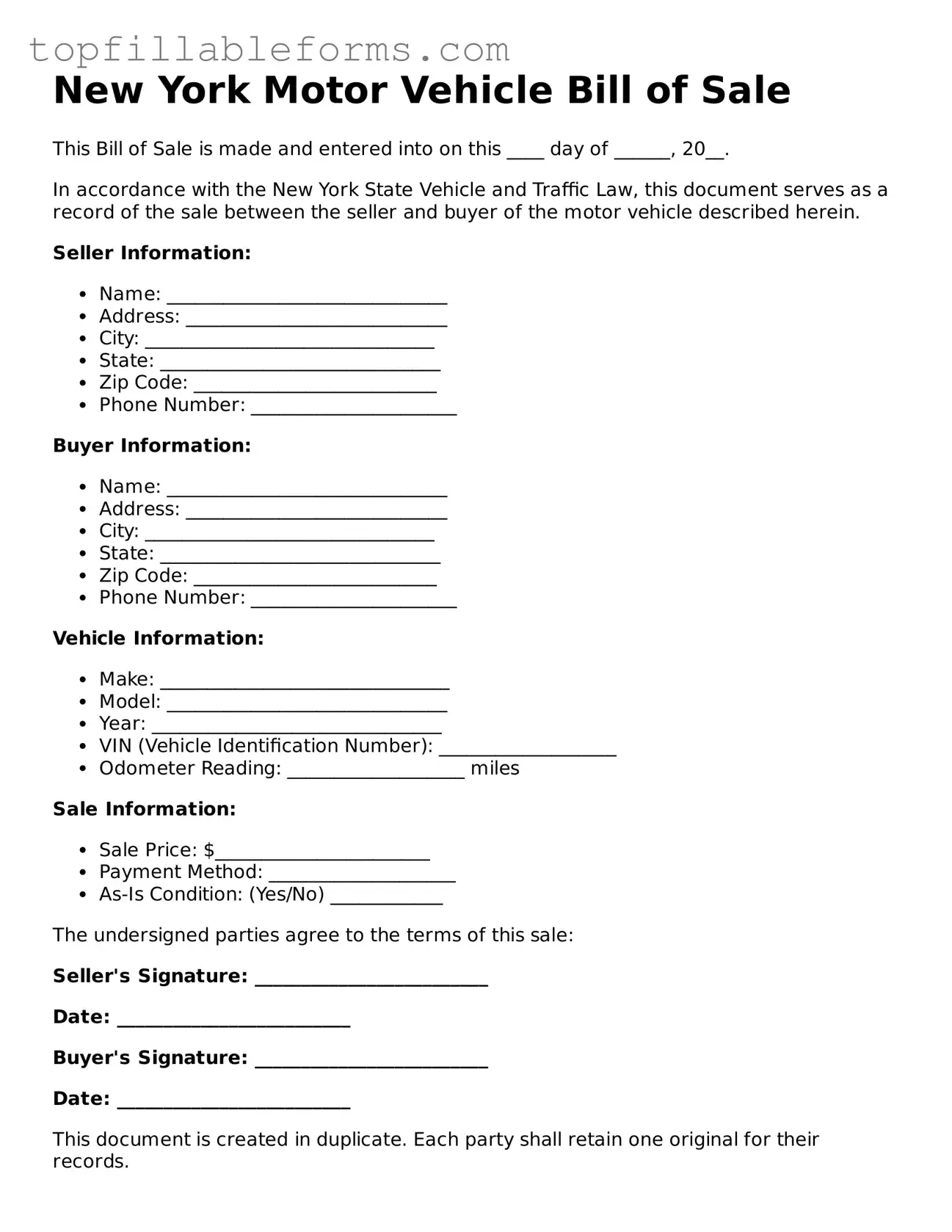Attorney-Verified Motor Vehicle Bill of Sale Template for New York
The New York Motor Vehicle Bill of Sale form is a crucial document that serves as a legal record of the sale and transfer of ownership for a motor vehicle in New York State. This form outlines key details about the vehicle, the seller, and the buyer, ensuring a smooth transaction. Understanding its components can help both parties navigate the sale process with confidence.
Open Motor Vehicle Bill of Sale Editor Here

Attorney-Verified Motor Vehicle Bill of Sale Template for New York
Open Motor Vehicle Bill of Sale Editor Here
Finish the form now and be done
Finish your Motor Vehicle Bill of Sale online by editing, saving, and downloading fast.
Open Motor Vehicle Bill of Sale Editor Here
or
▼ PDF File
